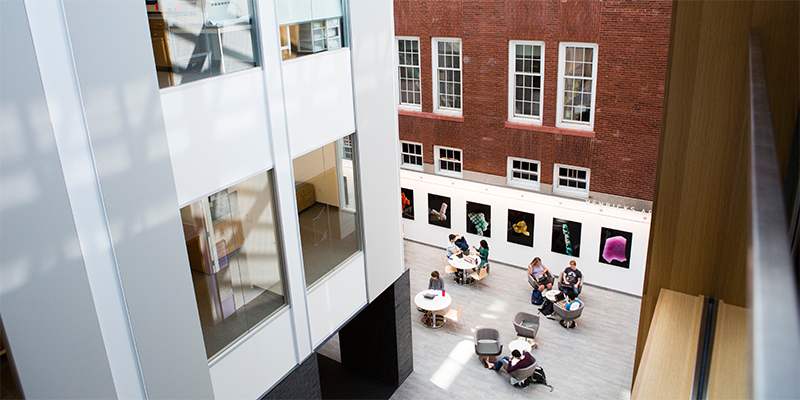About

Mechanical engineering is a rich and versatile profession that combines invention, analysis, and the manufacture of mechanical components and systems. This sector of engineering spans well-established industries such as automotive, aerospace, shipping, power, heating and cooling, and machinery, as well as the new and emerging fields of robotics, micro- and nano-devices, and medical devices.
The faculty research conducted in the Department of Mechanical Engineering emphasizes four integrated areas of specialization:
- The world of the very small, where we control materials all the way down to the atomic level, and also build functional devices at the micro- and nano-scale, allowing new avenues of innovation in new materials, sensors and actuators. We build micro and nano electro-mechanical systems (MEMS/NEMS) such as microphones, ultrasound sensors, and aerodynamic measurement systems. We develop hydrophobic coatings and nano-pattered surfaces for heat transfer, bio-sensing systems for detecting cancer, and nano-polished surfaces to prevent bacterial growth. We also develop models to determine how things fracture.
- The world of biological systems, where we look at how cells move in micro-fluidic systems or how blood flows in our veins and arteries. Our human factors group helps improve the design of future medical equipment, and the soft robotics group develops biologically inspired robots using squishy materials.
- The world of sustainable energy, where we focus on systems that generate, store, convert, and consume power efficiently and consciously. This includes power generation, pyro-thermal materials processing, electronics thermal management, hydrogen cell energy storage, next-generation battery design, and superconducting materials for energy transmission.
- The world of the human brain, where we examine how humans learn to engineer and interact with technology. We use that information to develop the next generation of educational technologies. Our students in mechanical engineering and human factors collaborate with the departments of education, child development, and psychology to better understand how we learn. This knowledge is leveraged into working prototypes and products through our partnerships with industry.